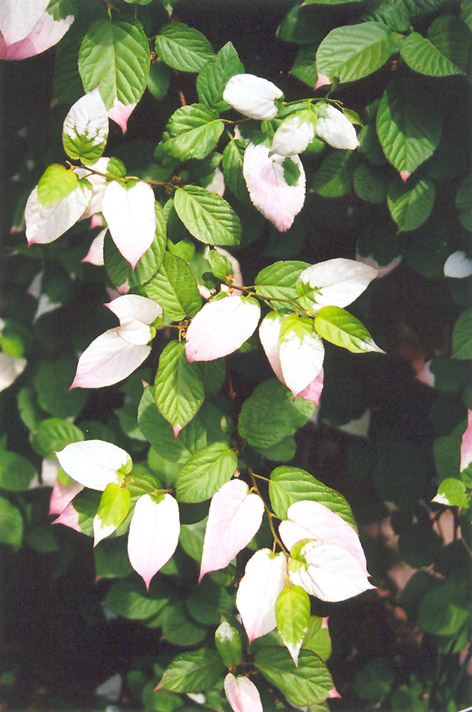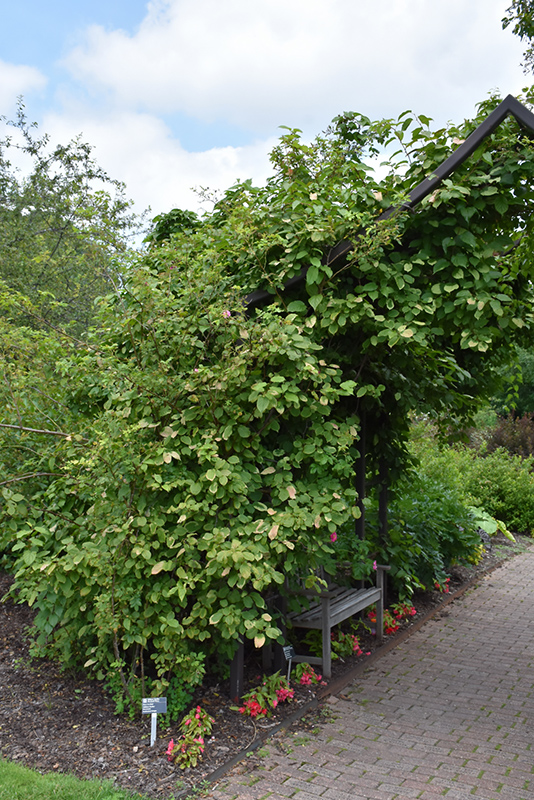Height: 20 feet
Spread: 24 inches
Sunlight:
![]()
![]()
Hardiness Zone: 3
Description:
A male selection of this interesting vine valued for its breathtaking white-pink variegated foliage all season long, small white fragrant flowers, will not set fruit; an underutilized climber that's excellent for screening
Ornamental Features
Arctic Beauty Kiwi has attractive white-variegated dark green foliage with hints of pink which emerges burgundy in spring on a plant with a spreading habit of growth. The large oval leaves are highly ornamental and turn yellow in fall. It features dainty fragrant white buttercup flowers with yellow anthers along the branches from mid to late spring.
Landscape Attributes
Arctic Beauty Kiwi is a dense multi-stemmed deciduous woody vine with a twining and trailing habit of growth. Its average texture blends into the landscape, but can be balanced by one or two finer or coarser trees or shrubs for an effective composition.
This is a relatively low maintenance woody vine, and is best pruned in late winter once the threat of extreme cold has passed. It has no significant negative characteristics.
Arctic Beauty Kiwi is recommended for the following landscape applications;
- Hedges/Screening
- General Garden Use
Planting & Growing
Arctic Beauty Kiwi will grow to be about 20 feet tall at maturity, with a spread of 24 inches. As a climbing vine, it tends to be leggy near the base and should be underplanted with low-growing facer plants. It should be planted near a fence, trellis or other landscape structure where it can be trained to grow upwards on it, or allowed to trail off a retaining wall or slope. It grows at a medium rate, and under ideal conditions can be expected to live for approximately 10 years.
This woody vine does best in full sun to partial shade. It prefers to grow in average to moist conditions, and shouldn't be allowed to dry out. It may require supplemental watering during periods of drought or extended heat. It is not particular as to soil type or pH. It is highly tolerant of urban pollution and will even thrive in inner city environments. This is a selected variety of a species not originally from North America.


